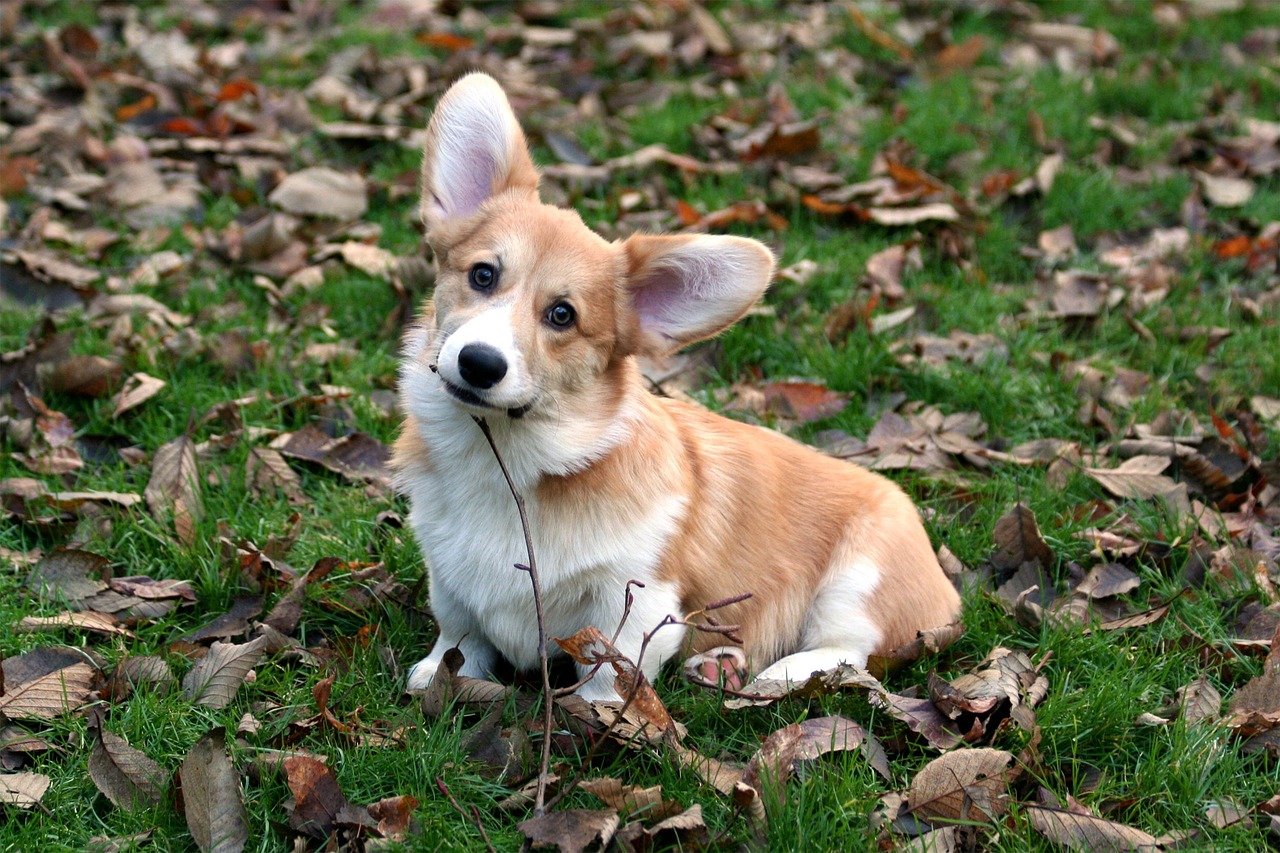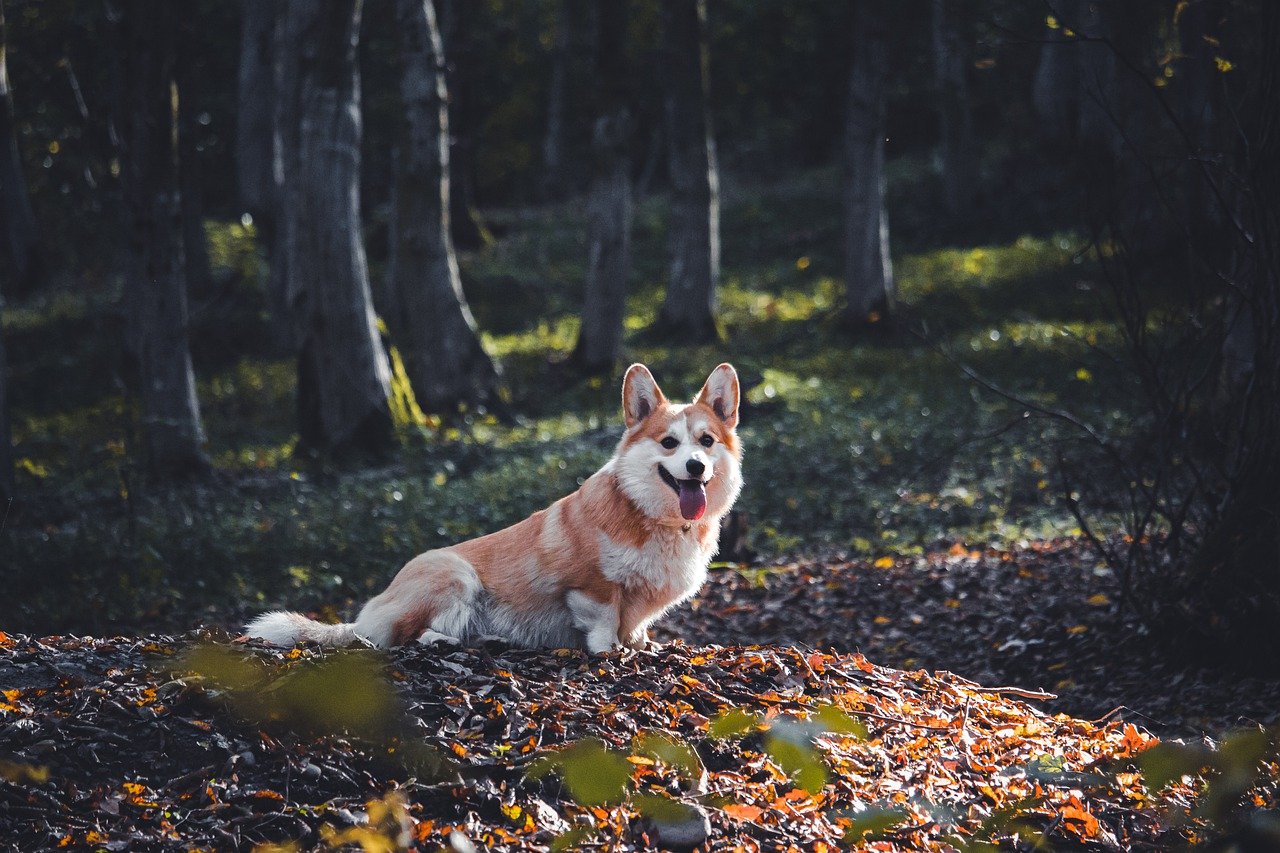The Personality Traits of the Welsh Corgi
Welsh Corgis are more than just adorable little dogs with stubby legs and big ears; they are a bundle of personality traits that make them exceptional companions. Known for their playful demeanor and affectionate nature, these dogs have captured the hearts of families and individuals across the globe. Their unique characteristics not only endear them to their owners but also make them a joy to be around. In this article, we will explore the various personality traits of Welsh Corgis, from their intelligence and trainability to their quirky behaviors and protective instincts. Let’s dive into the wonderful world of Corgis!
One of the most striking traits of Welsh Corgis is their affectionate nature. These dogs are known to form incredibly strong bonds with their owners, often following them around the house and seeking out attention. It's as if they have an innate understanding that love is a two-way street; the more affection you give them, the more they return. This loving behavior makes them incredibly popular as family pets, as they thrive on companionship and enjoy being part of a family unit. Whether it’s snuggling on the couch or playing fetch in the yard, Corgis are always eager to share their love.
Welsh Corgis are not just cute; they are also highly intelligent dogs, which makes them relatively easy to train. With their quick learning capabilities, Corgis can grasp new commands and tricks in no time. This intelligence means that they thrive on mental stimulation, so keeping their minds engaged is crucial. The best training methods for Corgis often involve positive reinforcement, where treats and praise encourage good behavior. Here are some effective training tips:
- Start with basic commands like "sit," "stay," and "come."
- Use treats as rewards to motivate your Corgi.
- Be consistent with commands and training sessions.
- Incorporate play into training to keep it fun.
Welsh Corgis thrive on social interaction, both with humans and other animals. Early socialization is key to developing a well-rounded personality in Corgis. Exposing them to different environments, people, and pets during their formative months helps them become more adaptable and confident. A well-socialized Corgi is usually friendly, outgoing, and less prone to anxiety. So, if you're bringing a Corgi into your home, make sure to introduce them to various situations early on!
One cannot talk about Corgis without mentioning their playful nature. These dogs are bursting with energy and love to engage in fun activities with their owners. Whether it’s a game of tug-of-war, chasing a ball, or simply romping around the yard, play is essential for their happiness. Incorporating regular play sessions into their daily routine not only keeps them physically fit but also strengthens the bond between dog and owner. Think of it as a joyful dance where both partners are equally invested!
Another remarkable trait of Corgis is their ability to adapt to various living situations. Whether you live in a cozy apartment or a spacious house, Corgis can make themselves at home. Their adaptable nature means they are just as happy curled up on the couch as they are exploring a large backyard. This flexibility makes them suitable companions for a wide range of lifestyles, proving that you don’t need a big space to have a big-hearted dog.
Despite their small stature, Welsh Corgis have strong protective instincts that often surprise people. They are fiercely loyal to their families and will not hesitate to alert you if they sense something amiss. This protective nature can sometimes lead to barking at strangers or unfamiliar noises, making them excellent watchdogs. Their instinct to protect their loved ones adds another layer to their personality, showcasing their courage and dedication.
Welsh Corgis are known for their vocal nature, often expressing themselves through barks and other sounds. This vocalization is a significant part of their personality, allowing them to communicate their needs and emotions effectively. Whether they are barking to alert you of a visitor or simply expressing their excitement, their vocal cues are often accompanied by expressive body language. Understanding these signals can deepen the bond between you and your Corgi, making for a more harmonious relationship.
One of the most endearing qualities of Welsh Corgis is their emotional sensitivity. They are often attuned to their owner's feelings, which can lead to a profound sense of companionship. If you’re feeling down, your Corgi might snuggle up to you, offering comfort without saying a word. This emotional intelligence makes them not just pets, but true companions who can sense when you need them the most.
Welsh Corgis are also known for their quirky behaviors that add to their charm. From the way they wiggle their butts when they’re excited to their habit of “herding” family members, these amusing traits make them delightful to have around. These quirks not only entertain but also give insight into their unique personalities, reminding us that every Corgi has its own story to tell.
Q: Are Welsh Corgis good with children?
A: Yes, Corgis are generally very good with children and often enjoy playing with them. Their playful nature makes them suitable family pets.
Q: How much exercise do Corgis need?
A: Corgis are active dogs and require regular exercise. Daily walks, playtime, and mental stimulation are essential for their well-being.
Q: Do Corgis bark a lot?
A: Corgis can be vocal and may bark to communicate or alert their owners. Training can help manage excessive barking.
Q: Are Corgis easy to train?
A: Yes, due to their intelligence, Corgis are generally easy to train, especially with positive reinforcement techniques.

Affectionate Nature
Welsh Corgis are not just dogs; they are loving companions that bring joy and warmth into any household. Their affectionate nature is one of the primary reasons why they have become such popular family pets. Imagine coming home after a long day, and there they are, wagging their tails with uncontainable excitement, ready to shower you with love. This strong bond they form with their owners is truly heartwarming and speaks volumes about their personality.
One of the most endearing traits of Corgis is their ability to connect emotionally with their humans. They have a knack for sensing when you’re feeling down or stressed. It’s almost as if they possess a sixth sense! When you’re feeling blue, your Corgi might snuggle up next to you, offering comfort and companionship. This emotional intelligence makes them not only great pets but also wonderful emotional support animals. Their affectionate behavior can be seen in various ways:
- Physical Affection: Corgis love to cuddle and will often seek out their owners for some quality snuggle time.
- Playful Interactions: They enjoy engaging in playful activities, which often leads to heartfelt bonding moments.
- Vocal Expressions: Their barks and playful yips can be quite expressive, showcasing their excitement to be around you.
Moreover, Corgis are known to be people-oriented, thriving on human interaction. Their affectionate nature is not just reserved for their owners; they often extend their love to family members, friends, and even strangers. This makes them excellent companions for families with children, as they are generally gentle and tolerant. The joy of having a Corgi can often be summed up in their warm greetings and the way they seem to light up at the sight of their favorite people.
In addition to their love for humans, Corgis also exhibit a unique bond with other pets. They are generally friendly and can adapt well to living with other animals, showcasing their even towards their furry siblings. This adaptability helps create a harmonious environment at home, where love and affection flow freely among all members of the household.
In conclusion, the affectionate nature of Welsh Corgis is a key factor that contributes to their popularity as beloved family pets. Their ability to form deep emotional connections, coupled with their playful and friendly demeanor, makes them a perfect fit for a variety of lifestyles. Whether you’re looking for a loyal companion or a playful friend, a Corgi’s affectionate spirit is sure to enrich your life in countless ways.

Intelligence and Trainability
When it comes to intelligence, Welsh Corgis are truly in a league of their own. These little furballs are not just adorable; they are also incredibly smart, often ranking among the top dog breeds in terms of trainability. Their keen minds absorb information like sponges, making them quick learners. This intelligence is not just a party trick; it plays a crucial role in their ability to adapt to various commands and tasks. Whether you're teaching them basic obedience or more advanced tricks, Corgis often pick up on cues faster than you can say "sit!"
One of the most effective ways to harness this intelligence is through positive reinforcement. Corgis respond exceptionally well to rewards, whether that's a tasty treat or a favorite toy. This method not only makes training more enjoyable for your pup but also strengthens the bond between you and your Corgi. It's like a game of give-and-take, where both parties walk away feeling like winners!
However, it’s essential to remember that while Corgis are eager to please, they can also be a bit stubborn at times. Their independent streak can make them seem less compliant, especially if they think they know better. This is where patience and consistency come into play. Establishing a routine and being firm yet gentle will yield the best results. Think of it as guiding a ship through rocky waters—steady hands and a clear direction will get you to your destination!
To give you a clearer picture of their intelligence, here’s a quick comparison of Welsh Corgis with some other popular breeds in terms of trainability:
| Breed | Trainability Rating | Intelligence Level |
|---|---|---|
| Welsh Corgi | High | Above Average |
| Labrador Retriever | High | Average |
| German Shepherd | Very High | High |
| Beagle | Moderate | Average |
Another critical aspect of a Corgi's training is socialization. Early exposure to different environments, people, and other animals is vital in shaping a well-rounded personality. The more experiences your Corgi has, the better they will be at handling new situations throughout their life. Think of socialization as a buffet of experiences—each one adds a little flavor to their personality!
It's also worth noting that Corgis have a playful side, which can be harnessed during training sessions. Incorporating games into learning can make the process feel less like a chore and more like a fun activity. For instance, using fetch as a reward for completing a command can keep your Corgi engaged and motivated. After all, who doesn’t love a good game of fetch?
In summary, the intelligence and trainability of Welsh Corgis make them fantastic companions for families and individuals alike. With the right approach to training, you’ll not only teach them commands but also foster a loving and respectful relationship that lasts a lifetime. So, grab those treats and get ready for a rewarding journey with your clever little Corgi!
Socialization Skills
Welsh Corgis are not just adorable little fluff balls with short legs; they are also social butterflies of the canine world! Their are crucial for their development, making them well-rounded companions. From the moment they are born, Corgis exhibit a natural curiosity about their surroundings, and this trait only amplifies as they grow. Early socialization is essential for these dogs, as it helps them learn how to interact positively with other animals and humans. Imagine a toddler learning to share and play with others; Corgis need that same kind of exposure to thrive.
When we talk about socializing a Corgi, it’s not just about letting them meet other dogs at the park. It involves a variety of experiences that can shape their behavior. Here are some key aspects to consider:
- Exposure to Different Environments: Take your Corgi to various places like pet stores, parks, or even cafes. The more experiences they have, the more confident they will become.
- Interactions with Other Animals: Encourage your Corgi to play with dogs of all sizes and temperaments. This helps them learn appropriate social cues and boundaries.
- Meeting New People: Introduce your Corgi to friends, family, and even strangers. This will help them become comfortable around different types of people.
By engaging your Corgi in diverse social situations, you'll not only help them develop their personality but also prevent potential behavioral issues down the road. A well-socialized Corgi is less likely to exhibit signs of fear or aggression, making them a joy to be around. Remember, the goal is to create positive experiences, so always supervise interactions and reward good behavior with treats and praise!
Moreover, Corgis have a natural inclination to be part of the family unit, and their social skills enhance their ability to bond with their human companions. This breed thrives on companionship, and their eagerness to please makes them exceptionally responsive to training and guidance. So, when you invest time in socializing your Corgi, you're not just teaching them to behave; you're also building a deeper connection that enriches both your lives.
In conclusion, the socialization skills of Welsh Corgis are a vital aspect of their personality. By providing them with varied experiences and interactions, you ensure that they grow into confident, friendly, and well-adjusted dogs. So, whether you’re introducing them to a new friend or taking them on an adventure, remember that each moment contributes to their overall happiness and adaptability!
- What is the best age to start socializing a Welsh Corgi? It's best to start socializing your Corgi as early as possible, ideally between 3 to 14 weeks of age, when they are most receptive to new experiences.
- How can I socialize my Corgi if I live in a small apartment? You can take your Corgi to dog parks, attend puppy classes, or arrange playdates with other dogs to ensure they get enough social exposure.
- What should I do if my Corgi shows fear during socialization? Take it slow! Gradually introduce them to new experiences and always ensure that interactions are positive. Consulting a professional trainer can also be beneficial.
Playfulness
One of the most delightful traits of Welsh Corgis is their inherent . These little bundles of joy have a natural zest for life that is contagious! Imagine a small dog, legs short but spirit high, bouncing around with an enthusiasm that can light up even the dullest of days. Corgis are not just pets; they are energetic companions that thrive on interaction and fun. Their playful nature not only makes them entertaining but also deeply endearing to their owners.
Whether it’s a game of fetch in the backyard or a spirited chase around the living room, Corgis are always ready for action. They have a knack for turning any mundane moment into a delightful adventure. For instance, you might find your Corgi playfully stealing your socks, turning a simple household item into a toy. This playful mischief is part of their charm—it's almost as if they have a built-in radar for finding the most entertaining activities!
Moreover, play is not just about fun for Corgis; it’s also crucial for their physical and mental well-being. Regular playtime helps them expend energy, maintain a healthy weight, and develop strong muscles. It’s like a workout session wrapped in joy! Engaging in playful activities also sharpens their intelligence, as they learn to strategize and problem-solve during play. Here are some popular games that Corgis love:
- Fetch: A classic game that never gets old. Corgis love to chase after balls or frisbees!
- Tug-of-war: This game allows them to use their strength and engage with their owners in a fun way.
- Hide and seek: Corgis enjoy using their keen sense of smell to find hidden treats or toys.
In addition to physical games, Corgis also enjoy mental stimulation through puzzle toys or training sessions disguised as fun games. This balance of physical and mental play is essential for keeping them happy and well-adjusted. Don’t be surprised if your Corgi brings you their favorite toy, wagging their tail and looking up at you with those big, expressive eyes, as if to say, “Let’s play!”
Ultimately, the playfulness of Welsh Corgis is not just a trait; it’s a lifestyle. Their ability to find joy in simple things reminds us of the importance of play in our own lives. So, whether you’re throwing a ball or simply enjoying a lazy afternoon together, embracing their playful spirit can lead to wonderful moments and cherished memories. After all, who wouldn’t want a furry friend that can turn every day into a fun-filled adventure?
Q1: How much exercise do Welsh Corgis need daily?
A: Welsh Corgis typically require about 30 to 60 minutes of exercise each day, which can be broken up into walks, playtime, and mental stimulation activities.
Q2: Can Corgis play well with children?
A: Yes! Corgis are known for their friendly nature and often get along well with children, making them great family pets.
Q3: What are some good toys for Corgis?
A: Corgis enjoy a variety of toys, including squeaky toys, balls, and interactive puzzle toys that challenge their intelligence.
Q4: How can I keep my Corgi entertained indoors?
A: Indoor activities like hide and seek, training sessions, and interactive toys can keep your Corgi entertained and mentally stimulated.
Adaptability
Welsh Corgis are truly remarkable when it comes to their . Whether you live in a cozy apartment in the city or a sprawling house in the suburbs, these little dogs have an uncanny ability to fit right in. It's almost as if they possess a special skill set that allows them to adjust to their surroundings seamlessly. Imagine a chameleon, effortlessly blending into its environment; that's what a Corgi does with its home! They thrive in various living situations, making them ideal companions for a wide range of lifestyles.
One of the reasons for their adaptability lies in their versatile nature. Corgis are not just couch potatoes; they also enjoy engaging in physical activities. This means that whether you're taking leisurely strolls around the neighborhood or embarking on adventurous hikes, your Corgi will happily tag along. Their energetic spirit ensures they can handle both relaxed and active lifestyles. Plus, they don't require vast amounts of space to feel content. A small yard or even just a few blocks to explore can provide them with enough stimulation to be happy.
Moreover, Corgis are known to adjust to the emotional climate of their homes. If you're feeling down, they can sense it and will often come to your side, offering comfort with their warm presence. On the flip side, when it's time to play, they can switch gears and bring out their playful side, ready to turn any dull moment into a fun-filled experience. This emotional adaptability is a significant part of what makes them such beloved family members.
To further illustrate their adaptability, let's look at a few scenarios:
| Living Situation | Corgi Adaptation |
|---|---|
| Apartment Living | Enjoys short walks and indoor playtime, thriving in limited space. |
| Suburban Home | Relishes larger spaces for running around and playing fetch. |
| Active Lifestyle | Participates in outdoor adventures and enjoys exercise. |
| Calm Environment | Adapts to a quieter lifestyle, enjoying cuddles and relaxation. |
In essence, the adaptability of Welsh Corgis is not just about their physical environment; it also encompasses their ability to adjust to the emotional needs of their owners. This makes them not only great pets but also fantastic companions who can bring joy and comfort regardless of your living situation. So, if you're considering adding a Corgi to your family, rest assured that they will find their place in your home and heart, no matter where you are!
Protective Instincts
Despite their small stature, Welsh Corgis possess a remarkable set of protective instincts that often surprise those unfamiliar with the breed. These little furballs may not look like your typical guard dogs, but they have a fierce loyalty to their families that can be quite astonishing. Imagine a tiny knight in shining armor, always ready to defend their castle—this is precisely how Corgis view their role within the household.
One of the most striking aspects of a Corgi's protective nature is their alertness. They are known to be vigilant watchdogs, always on the lookout for anything out of the ordinary. Whether it’s a delivery truck pulling up or a neighbor walking by, a Corgi will be the first to bark and alert their family. This vocalization serves as both a warning and a form of communication, letting everyone know that their little protector is on duty.
Furthermore, their protective instincts extend beyond mere barking. Corgis are incredibly intuitive and can sense when something is amiss. If a family member is feeling down or anxious, these dogs often stay close, offering comfort and companionship. Their emotional sensitivity allows them to pick up on the mood of their environment, which enhances their protective behavior. This bond creates a two-way street of trust and affection, making them not just pets but true family members.
However, it's essential to channel their protective instincts appropriately. Without proper training and socialization, a Corgi's alertness can lead to unnecessary barking or even territorial behavior. This is why early socialization is crucial. By exposing them to various situations, people, and other animals, you can help them distinguish between genuine threats and everyday occurrences. This way, you ensure that their protective instincts serve to enhance your family's safety rather than create undue stress.
In summary, the protective instincts of Welsh Corgis make them unique companions. They may be small, but their hearts are big, and their loyalty is unwavering. Whether they’re alerting you to a stranger at the door or comforting you during tough times, these lovable dogs embody the idea that true protection comes from love and connection. So, if you’re considering bringing a Corgi into your home, be prepared for a furry friend who will always have your back!

Vocalization and Communication
Welsh Corgis are not just adorable little dogs; they are also quite the chatterboxes! Their vocalization is one of the most distinctive traits that set them apart from other breeds. Imagine having a tiny, fluffy companion who expresses their thoughts and feelings through a variety of barks, yips, and even howls. This vocal nature is not just for show; it plays a crucial role in how they communicate with their owners and the world around them. But what do these sounds really mean? Let's dive into the fascinating world of Corgi communication.
First off, Corgis have a unique way of expressing themselves. They might bark when they’re excited, alerting you to a visitor at the door or signaling that it’s playtime. Their barks can vary in pitch and tone, which can often give you clues about their mood. For instance, a high-pitched yip might indicate joy, while a low growl could suggest a warning. Understanding these vocal cues can enhance your bond with your Corgi and make for a more harmonious living environment.
Moreover, Corgis are known for their ability to communicate their needs and desires effectively. Whether they want to go outside, need food, or simply crave your attention, they have their own way of letting you know. For example:
- Barking: A quick bark might mean "Hey, look at me!"
- Whining: This could indicate discomfort or a desire for something.
- Howling: Often a response to sirens or music, this is their way of joining in the fun!
Furthermore, their communication extends beyond vocalizations. Corgis are also quite expressive with their body language. A wagging tail, perked ears, or a playful stance can all convey a range of emotions from happiness to curiosity. This combination of vocal and physical communication makes them incredibly engaging companions. It’s like having a little furry friend who can talk to you!
Interestingly, Corgis also have a knack for picking up on human emotions. They can sense when you’re happy, sad, or stressed, and they often respond accordingly. This emotional sensitivity is part of what makes them such wonderful family pets. They can be a source of comfort in tough times, often snuggling up to you when you need it the most. Their ability to connect with you on an emotional level is truly special and adds another layer to their vocal communication.
In conclusion, the vocalization and communication skills of Welsh Corgis are a delightful aspect of their personality. They not only express their needs and feelings through barks and body language but also connect with their owners in a way that fosters a deep bond. So, the next time your Corgi starts barking or howling, take a moment to listen and observe. You might just discover a whole new world of communication waiting for you!
Here are some common questions about the vocalization and communication of Welsh Corgis:
- Do all Corgis bark a lot?
While Corgis are known for their vocal nature, the amount they bark can vary from dog to dog. Some may be more vocal than others, depending on their personality and environment. - Can Corgis be trained to bark less?
Yes! With consistent training and positive reinforcement, you can teach your Corgi when it's appropriate to bark and when to be quiet. - What should I do if my Corgi barks excessively?
Excessive barking can be managed by identifying the triggers and providing appropriate training or distractions. Consult with a professional trainer if needed.
Emotional Sensitivity
Welsh Corgis are not just adorable companions; they are also remarkably emotionally sensitive animals. This trait sets them apart from many other breeds, making them incredibly attuned to the feelings of their owners. Have you ever noticed how your Corgi seems to know when you're feeling down? It's almost as if they possess a sixth sense! This emotional awareness allows them to respond to your moods in ways that can be comforting and supportive.
When their owners are happy, Corgis often mirror that joy with their playful antics and wagging tails. Conversely, if you’re feeling a bit blue, they might snuggle closer, offering silent support. This behavior isn't just a coincidence; it’s a deeply ingrained characteristic that stems from their history as herding dogs. They were bred to work closely with humans, which has fostered a strong bond that goes beyond mere companionship.
In fact, studies have shown that dogs, including Corgis, can read human emotions through facial expressions and vocal tones. This means that your Corgi is likely picking up on your feelings even when you think you’re hiding them. For example, if you’re speaking in a softer tone or your body language is closed off, your Corgi may sense that something is amiss and adjust their behavior accordingly.
To illustrate this emotional sensitivity, consider the following table that outlines some common behaviors exhibited by Corgis in response to their owner's emotions:
| Owner's Emotion | Corgi's Response |
|---|---|
| Happy | Playful jumping and wagging tail |
| Sad | Increased cuddling and closeness |
| Stressed | Seeking to comfort with gentle nudges |
| Excited | Engaging in playful behavior and barking |
This emotional bond not only enhances your relationship with your Corgi but also contributes to their overall happiness and well-being. However, it’s important to recognize that this sensitivity can also make them more prone to stress and anxiety. A loud argument or a sudden change in routine may leave them feeling unsettled. Therefore, creating a calm and stable environment is essential for their emotional health.
In conclusion, the emotional sensitivity of Welsh Corgis makes them extraordinary companions. Their ability to connect with their owners on an emotional level not only enriches your life but also provides them with a sense of purpose and belonging. So, the next time you find yourself feeling a bit off, just remember that your Corgi is likely right there with you, ready to offer their unwavering support.
- Do Corgis get anxious easily? Yes, due to their emotional sensitivity, Corgis can become anxious in stressful situations.
- How can I help my Corgi manage their emotions? Providing a stable environment, regular exercise, and positive reinforcement training can help.
- Are Corgis good therapy dogs? Absolutely! Their affectionate nature and emotional sensitivity make them excellent therapy dogs.
Quirky Behaviors
Welsh Corgis are not just adorable; they are also full of that make them truly unique companions. One of the most charming traits is their tendency to engage in what can only be described as a “Corgi dance.” When excited, these little furballs often prance around in circles, wagging their tails like there's no tomorrow. It's like they have their own little celebration every time they see you walk through the door! This behavior is not just a display of joy; it’s a way for them to express their love and enthusiasm, and it never fails to bring a smile to their owners' faces.
Another amusing quirk is their propensity to “herd” everything from children to other pets. Originally bred for herding cattle, Corgis have retained this instinct, and it manifests in their playful antics. You might find your Corgi nipping at the heels of your kids as they run around the yard, or trying to round up other pets in the house. This behavior, while sometimes mischievous, showcases their natural instincts and can be quite entertaining to watch.
Additionally, Corgis are known for their love of “talking.” They are vocal dogs, and their barks can range from a simple alert to a full-blown conversation. If you’ve ever had a Corgi, you know that they often “talk back” when you’re interacting with them, almost as if they are trying to engage in a dialogue. This vocalization is a significant part of their personality and can be both amusing and endearing. It’s like having a little furry friend who is always ready to chat!
Moreover, Corgis have a peculiar habit of “flopping” onto their sides or backs when they’re feeling particularly relaxed or playful. This behavior, often referred to as “Corgi flop,” is not just a sign of comfort; it’s also a way for them to invite you to join in on the fun. When they roll over, it’s their way of saying, “Hey, look at me! Let’s play!” This endearing behavior is a testament to their playful nature and their desire to bond with their humans.
Lastly, Corgis have a knack for finding the coziest spots in the house. Whether it’s a sunny patch on the floor or a soft blanket on the couch, these dogs know how to make themselves comfortable. They often create their own little nests, and you might find them burrowed in a pile of laundry or snuggled up in a corner of the couch, looking utterly content. This behavior not only highlights their love for comfort but also their quirky personality, as they choose the most unexpected places to settle down.
In summary, the quirky behaviors of Welsh Corgis add a delightful layer to their already charming personalities. From their joyful dances to their herding instincts, these little dogs are full of surprises. Their unique traits not only entertain but also strengthen the bond between them and their owners, making every day an adventure. So, if you’re considering adding a Corgi to your family, be prepared for a lifetime of laughter and love!
- Are Welsh Corgis good with children? Yes, Corgis are generally great with children and can be very playful and affectionate.
- Do Corgis require a lot of exercise? Yes, they are energetic dogs and need regular exercise to stay healthy and happy.
- How do I train my Corgi effectively? Use positive reinforcement techniques, like treats and praise, to encourage good behavior.
- Are Corgis prone to any health issues? Like all breeds, they can be prone to certain health issues, including hip dysplasia and obesity, so regular vet check-ups are essential.
Frequently Asked Questions
- What are the personality traits of Welsh Corgis?
Welsh Corgis are known for their affectionate nature, intelligence, and playful demeanor. They bond closely with their families, making them wonderful companions. Their adaptability allows them to thrive in various living situations, whether in apartments or larger homes.
- How trainable are Welsh Corgis?
Corgis are highly intelligent, which makes them relatively easy to train. They respond well to positive reinforcement techniques and enjoy learning new tricks. Early training and socialization are crucial in shaping their behavior and ensuring they develop into well-adjusted adults.
- Do Welsh Corgis get along with other pets?
Yes! Welsh Corgis are social dogs that generally get along well with other pets, especially if they are socialized early. They enjoy interacting with both humans and animals, making them friendly additions to multi-pet households.
- Are Welsh Corgis good family pets?
Absolutely! Their affectionate and playful nature makes them fantastic family pets. They are known to be great with children and can be protective of their loved ones, adding to their appeal as family companions.
- How much exercise do Welsh Corgis need?
Welsh Corgis are energetic dogs that require regular exercise to stay healthy and happy. Daily walks, playtime, and mental stimulation are essential to keep them engaged and prevent boredom-related behaviors.
- What are some common health issues in Welsh Corgis?
Like all breeds, Welsh Corgis can be prone to certain health issues, such as hip dysplasia, obesity, and degenerative myelopathy. Regular veterinary check-ups and a balanced diet can help mitigate these risks.
- How do I communicate with my Welsh Corgi?
Corgis are vocal and expressive, often using barks and body language to communicate. Pay attention to their sounds and behaviors, and respond positively to their cues to strengthen your bond.
- What are some quirky behaviors of Welsh Corgis?
Welsh Corgis are known for their unique and often amusing quirks, such as their characteristic "Corgi dance," where they prance around excitedly. These behaviors not only entertain their owners but also reflect their playful personalities.



















